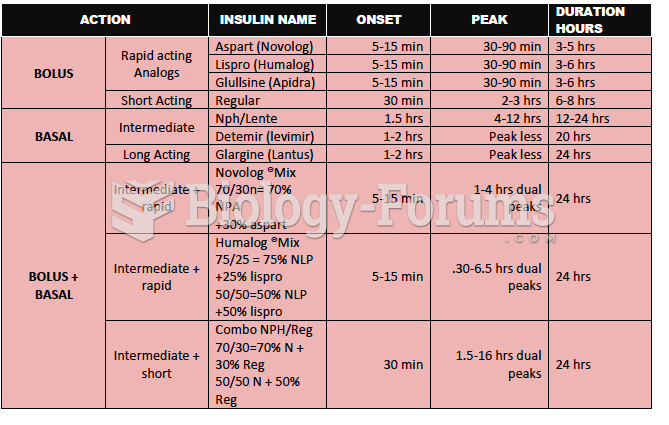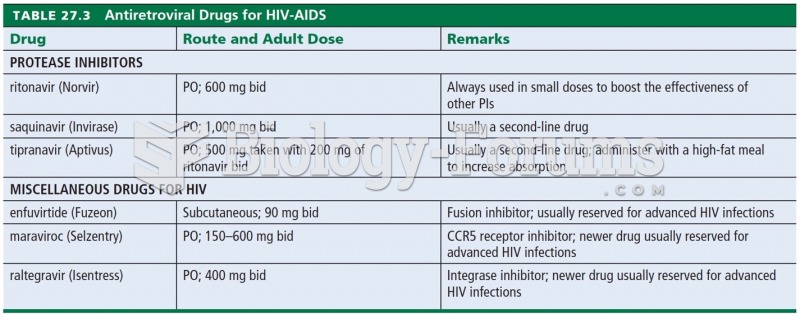This topic contains a solution. Click here to go to the answer
|
|
|
Did you know?
The horizontal fraction bar was introduced by the Arabs.
Did you know?
There are more sensory neurons in the tongue than in any other part of the body.
Did you know?
Many supplement containers do not even contain what their labels say. There are many documented reports of products containing much less, or more, that what is listed on their labels. They may also contain undisclosed prescription drugs and even contaminants.
Did you know?
After 5 years of being diagnosed with rheumatoid arthritis, one every three patients will no longer be able to work.
Did you know?
Most fungi that pathogenically affect humans live in soil. If a person is not healthy, has an open wound, or is immunocompromised, a fungal infection can be very aggressive.







